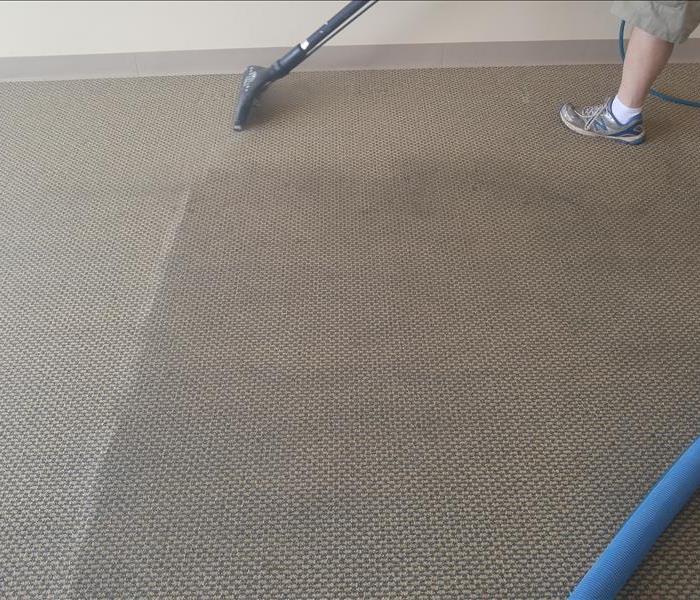3 Ways to Improve Indoor Air Quality
2/12/2018 (Permalink)
As winter wears on, it’s not uncommon for people living in cold weather climates to experience some cabin fever. Winter weather confines many people to their homes, making many antsy to get out once the first signs of spring begin to appear.
In addition to contributing to cabin fever, winter weather can have a negative impact on indoor air quality. While air pollution is something most often associated with densely populated cities, the air inside homes is not immune to pollution, especially during long winters when windows are often closed for months at a time. Though open windows in spring and summer can vastly improve indoor air quality, there are ways to ensure that air stays fresh and healthy regardless of which season it happens to be.
- Clean the floors.
Dirty floors are one of the chief contributors to poor indoor air quality. Dust, dirt, pollen, and pet dander can accumulate on floors, leading to poor air quality and potentially aggravating respiratory conditions such as asthma. When vacuuming, use a vacuum with a HEPA filter, which is a uniquely designed mechanical air filter that traps harmful particles such as pollen, pet dander and dust mites. When you finish vacuuming, mop floors to gather any dust or allergens that escaped the vacuum. If simple vacuuming does not work the experts at SERVPRO are the leaders in carpet and upholstery care and cleaning.
- Control indoor air moisture.
Moist air is great for dust mites and mold, both of which are very bad for humans, so do everything you can to maintain healthy levels of indoor air moisture. Dehumidifiers can reduce indoor air moisture and control allergens, but it’s important to take additional steps as well. When bathing, try to keep a bathroom window open on a slight crack to prevent mold growth. When preparing meals in the kitchen, make use of your exhaust fan. In addition, don’t over water houseplants, as they can become breeding grounds for mold. If a musty smell continues even after all these steps call us at 336-224-2565 for your no cost assessment to determine if your property has a mold issue.
3. Resist synthetic fragrances.
A home that smells good tends to feel more pleasant, especially during winter months when windows are closed. But synthetic fragrances, such as those found in detergents and air fresheners, may be providing that welcoming scent at a heavy cost to a home’s inhabitants. Such fragrances may be emitting various chemicals, including volatile organic compounds, or VOCs, into the air, affecting indoor air quality and possibly even human health. When buying laundry products, look for those that are fragrance-free, also choosing home cleaning products that do not include any artificial fragrances.
Indoor air quality tends to suffer in colder months, when windows are closed and doors are open only briefly. But homeowners can take a handful of simple yet effective steps to ensure the air in their homes is healthy all year long.






 24/7 Emergency Service
24/7 Emergency Service
